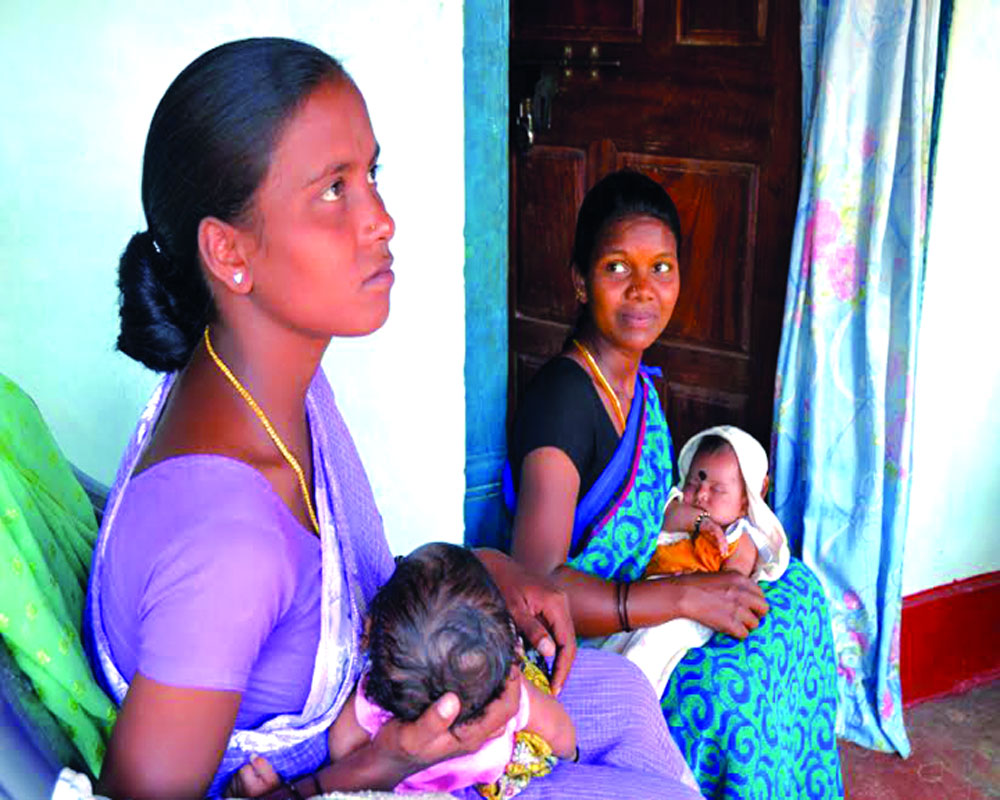Investment in family planning counselling corners is essential not just to fulfill India's pledge at the International Conference on Population and Development to give women reproductive choices but also because women should be allowed to plan their future
In Bihar, a State where many girls are married early — some as soon as they step into their first year of puberty — having children quickly is not surprising or unexpected. The girls are caught in an unfortunate bind where social and cultural circumstances compel them to marry early and prove their fertility immediately. More often than not, they have a few children in quick succession.
Reena Devi of Pariauna village, Nalanda district in Bihar, had her first child within a year of her marriage. Unfortunately, her son died of jaundice soon after. She had her second child 10 months later. Ignorant about the consequences of quick pregnancies on her health, Reena was also unaware that she could control her fertility by planning her family.
According to the 2011 census, girls marry young in Nalanda district, many of them below the legal age of marriage. Lack of information, coupled with early marriage and pregnancy, have contributed to a high Total Fertility Rate (TFR) of 3.9 for the district. TFR indicates the average number of children expected to be born per woman during her entire reproductive span (15-49 years). Much of this stems from the fact that Bihar has the highest percentage of illiterate women at 26.8 per cent and also continues to top the country as far as illiteracy levels are concerned with a TFR of 3.2.
In fact, fertility for women like Reena begins too young, with too many and is also too frequent. However, a new initiative piloted some years ago was expected to change this situation. The State health department launched family planning corners to provide postpartum contraceptive counselling. This was after realising that even if couples wanted to space their children, public health centers were unable to provide appropriate information or choices to plan their family.
It was believed that in a society where women are reluctant to talk about reproductive health, explaining the right contraceptive choice for the young rural mother, especially after the birth of the first child, would make a big difference in slowing fertility.
Counselling is a crucial component in decision-making. If couples are counselled and allowed to make informed choices based on the advantages and disadvantages of contraceptives available, they will want family planning services, say experts.
Under this pilot project, the State health society set up two such family planning corners at the Nalanda Sadar hospital at Bihar Sharif and two primary health centers (PHCs) at the block level in Harnaut and Noorsarai in partnership with an NGO working on family planning. These corners were within these Government facilities and were used by NGO counsellors to disseminate family planning information and services, including postpartum contraceptives.
It took time but the family planning corners began engaging couples. At the Noorsarai PHC, after the counsellor explained the importance of family planning to a new mother, it was the mother-in-law accompanying her, who took the responsibility of ensuring that the matter was discussed at home. This was a big opportunity for family planning corners. They were able to ensure that the daughter-in-law returned with her husband to learn how to space the family.
Even at the Sadar hospital in Bihar Sharif, interest in family planning grew. With the number of institutional deliveries recording an increase here, the counselling desk became crucial, especially for postpartum contraceptives. Since many women, who came to the Sadar hospital for deliveries, had little or no information about contraceptives, the active family planning counsellor visits the maternity ward to interact with the mothers. Here, she identifies women, who need family planning services, and then counsels them on postpartum contraceptives as well as on the basket of services available. Ever since these centres were set up, the percentage of people accepting one of the family planning services offered here rose from five per cent in three months, indicating the increasing demand for services and the difference counselling could make.
Clearly, there is a clear relationship between TFR and Contraceptive Prevalence Rate (CPR). Data has shown that where there is very low contraceptive prevalence. Fertility is very high as in States like Bihar. In States like Tamil Nadu and Andhra Pradesh, fertility is lower because contraceptive prevalence is much higher. There are thousands of couples, who want to space their families, but do not have access to means of family planning. More than one-fifth of the women in India reported that their last birth as unwanted.
In States like Bihar, unmet need is about 21.2 per cent. But only 11 per cent of the health workers have talked to women, who do not use any form of family planning. Since unmet contraceptive needs lead to unwanted fertility, an increased informed use of family planning methods may lower total fertility significantly. So, an investment in family planning counselling corners is essential. This is not just because scaling up the pilot project can help India fulfill its pledge taken 25 years ago at the International Conference on Population and Development to give women reproductive choice, but because family planning is a woman’s right.
(The writer is a senior journalist)


























